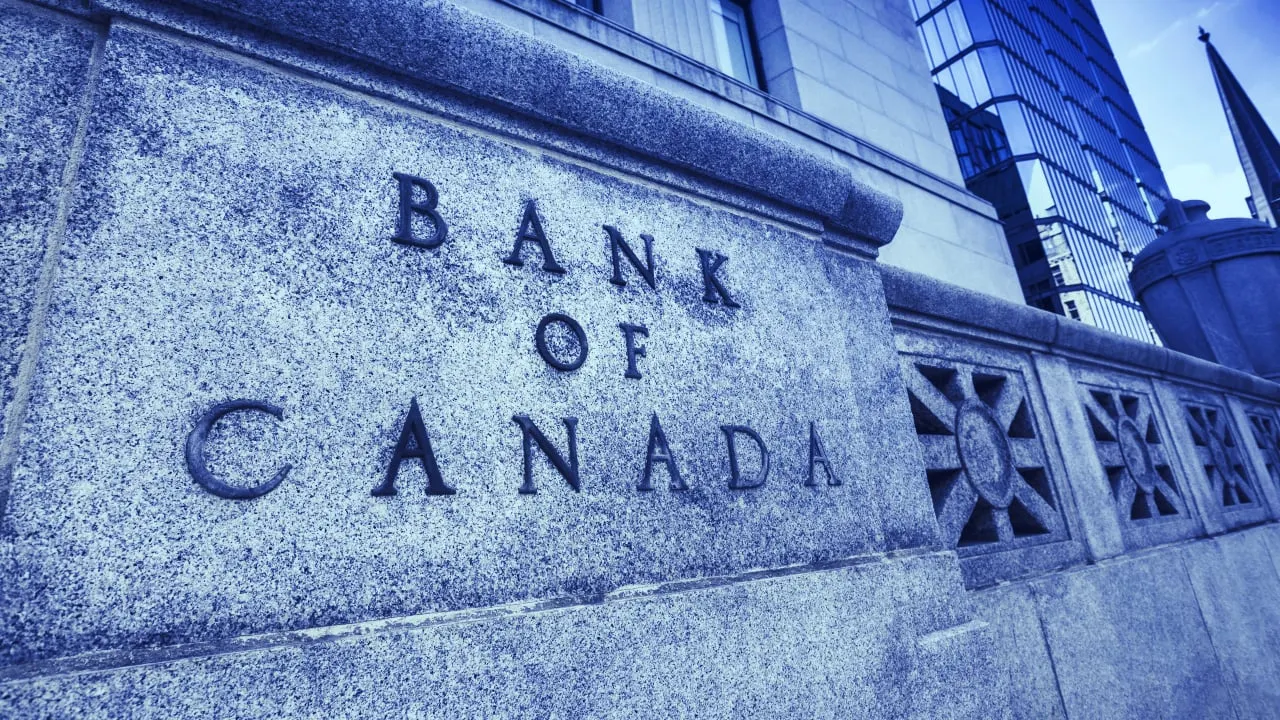In brief
- Bank of Canada said it's developing a digital currency but will only issue it if Canadians need it.
- The bank also outlined the measures they are considering for a public consultation.
- A majority of the world's central banks are now studying CBDCs.
Canada does not want to fall behind if the world continues to embrace digital currencies. The Bank of Canada signaled on Tuesday that it is now developing a prototype for its own central bank digital currency. The bank, however, only plans to deploy it if it is needed by Canadians.
“We need to move forward to work out what a potential CBDC might look like and how it could be managed, if the decision were ever taken to issue one,” Deputy Governor Tim Laine said at a FinTech conference in Montreal. Laine stressed that the Bank of Canada doesn’t necessarily believe a digital currency is needed right now, but it will prepare one as a contingency.
The bank outlined two scenarios in a press release which it said would “warrant an introduction of a digital currency by the Bank of Canada.” One scenario would be if physical cash was “reduced or eliminated altogether; leaving some Canadians left out.” Another is if cryptocurrencies “make serious inroads,” causing privately owned companies to become concerned over “privacy and handling controls of payments.”
In the release, the bank also provided questions for public discussion in Canada that would influence whether to move forward with a CBDC: “What design features might make a CBDC attractive for merchants and users? How would a digital currency work with other methods of payment? How would a CBDC work for cross-border transactions? [And] how can we protect privacy while preventing illicit uses?”
The bank said it supports the continued use of cash and bank deposits and will make sure they remain available to Canadians. “The goal is to provide consumers, businesses and financial institutions with a modern, fast and convenient payment system,” Laine said.
Canada is but the latest in a rapidly growing list of countries that are exploring their own central bank digital currency. The Bank of International Settlements published a survey last month that said 80 percent of central banks are working on digital currencies in some fashion. China has already filed 84 patents for a digital yuan. Meanwhile, the US Federal Reserve has also indicated that it is considering issuing its own CBDC.

